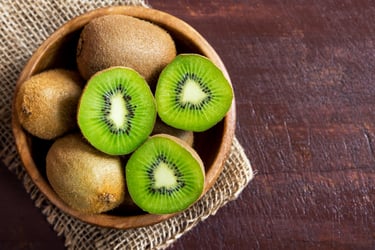eStoreRx™
Online Supplement Dispensary
eStoreRx™ is an easy direct-to-patient ordering & fulfilment program for lifelong wellness.
For over 40 years, Biotics Research Corporation has revolutionized the nutritional supplement industry by utilizing “The Best of Science and Nature”. Combining nature’s principles with scientific ingenuity, our products magnify the nutritional
eStoreRx™ is an easy direct-to-patient ordering & fulfilment program for lifelong wellness.
Biotics Research is proud to expand our commitment to education with the Wellness Unfiltered Pro Podcast. Each episode delves into key health topics and the clinical applications of our premier products. Through candid, insightful conversations, our team offers practical guidance to keep you informed and empowered as a healthcare professional.
February 03 2026
From bodybuilders looking to bulk up to everyday folks trying to drop a few pounds, people have practiced tracking their food for decades. Tracking ca...
 Obtaining restorative sleep on a nightly basis (between 7 and 9 hours) is critical for health, yet often very difficult for many patients. Lack of sleep can make eating healthy challenging, as cravings for sugar and carbohydrates often increase. Poor sleep may contribute to the inability to properly manage stress. It has been linked to an increased risk of multiple chronic diseases and immune dysfunction.
Obtaining restorative sleep on a nightly basis (between 7 and 9 hours) is critical for health, yet often very difficult for many patients. Lack of sleep can make eating healthy challenging, as cravings for sugar and carbohydrates often increase. Poor sleep may contribute to the inability to properly manage stress. It has been linked to an increased risk of multiple chronic diseases and immune dysfunction.
Best Foods for Sleep
Certain foods may be able to naturally help support restorative sleep.
Nuts
Almonds are a source of important nutrients such as phosphorus, calcium, manganese, magnesium, and riboflavin. Magnesium, in particular, can help support relaxation, healthy cortisol levels, and restful sleep. Almonds are also a source of the hormone melatonin, which helps with regulating circadian rhythm.
Walnuts are also a great source of magnesium and melatonin. Walnuts may have an additional benefit as they are a source of the omega-3 fat alpha-linolenic acid (ALA). ALA is converted into DHA, which helps increase serotonin levels, a hormone that helps with relaxation.
Herbal Tea
Although technically not a “food,” many herbal teas have or sleep-supporting properties.
Chamomile contains a compound called apigenin that binds to your brain receptors promoting sleep. One study found that chamomile extract helped participants fall asleep 15 minutes faster and they woke up less during the night.
Passionflower tea is rich in antioxidants and is also a source of apigenin. Passionflower may also increase production of the GABA, which helps with stress and anxiety.
Turkey
The sleepiness many people feel after Thanksgiving dinner is partially due to the tryptophan content of turkey. Tryptophan, an essential amino acid, helps increase production of the sleep hormone melatonin. Turkey is also a good source of protein, which has been associated with better quality sleep.
Kiwi
This little green fruit has some surprising benefits for sleep. A 2011 study found that when adults consumed two kiwis before bed they fell asleep 42% faster compared to those that did not eat anything before bed. Sleep time also increased by 13% for those who consumed the kiwi. The sleep-promoting effects of kiwi may be related to its ability to boost serotonin, a calming hormone, or to its inclusion of nutrients that support a healthy inflammatory process.
Tart Cherry Juice
Tart cherry juice, another sleep-supportive food, is rich in antioxidants, and is also a source of melatonin, tryptophan, and serotonin. A 2018 study found that when subjects drank 8 ounces of tart cherry juice twice a day they slept 84 minutes longer and reported better sleep quality compared to when they did not drink juice.
Warm Milk
Although not a universal choice due to its potential allergenicity among some individuals, milk is a classic choice for a good night’s sleep owing to its rich source of the tryptophan. Known for its calming properties as it increases levels of melatonin, milk is also a good source of calcium, required for muscle relaxation. Because not everyone can tolerate cow’s milk, coconut milk, almond milk and nut milk are all natural and delicious tasty alternatives to promote a restful sleep.
Additional Tips for a Good Night’s Sleep
Getting a good night’s sleep isn’t just about the foods your patients eat, but also how and when they consume their meals. With the exception of a sleep-promoting beverage, patients should avoid eating least one hour before bed. High fat or spicy meals should also be avoided at least 3-4 hours before bed.
Although everyone needs proper hydration, decreasing water intake at least 1-2 hours before bed can help reduce those middle-of-the night trips to the bathroom.
Caffeine should be avoided at least six hours before bedtime, particularly if an individual is sensitive to its effects. Although alcohol can initially help a person fall asleep, it may ultimately lead to waking up during the night or the prevention of obtaining a deep sleep. Finally, a regular exercise routine is one of the best things that can be done to improve the quality of sleep.
Related Biotics Research Products:
Submit this form and you'll receive our latest news and updates.
The lymphatic system plays a crucial role in maintaining homeostasis within the body, with an emerging body of research ...
Learn moreAs reviewed in a previous blog, infertility is a growing global problem, with record low fertility rates reported in the...
Learn moreResults of a study published May 2024 in Alzheimer’s Research & Therapy indicate an association between sleep apnea ...
Learn more
*These statements have not been evaluated by the Food and Drug Administration. This product has not intended to diagnose, treat, cure, or prevent any disease.
© 2025 Biotics Research Corporation - All Rights Reserved
Submit your comment